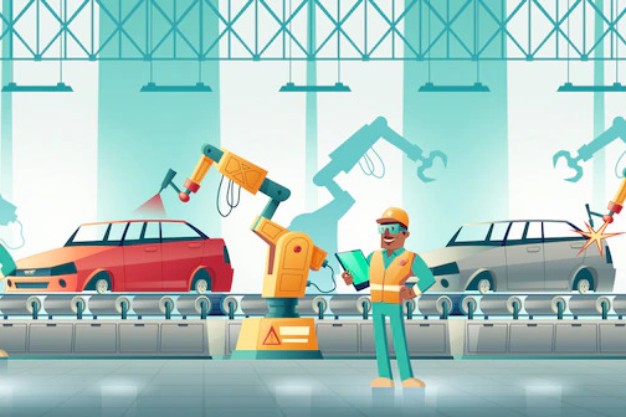Smart Mobility Solutions: The Need for Skilled Engineers
Listen to this Article

In recent years, the demand for eco-friendly transportation options has soared, driving the need for a talent pool of engineers skilled in Electric Vehicles (EVs), Software-defined Vehicles (SDVs), and Advanced Driver Assistance Systems (ADAS). As the world transitions towards sustainable mobility, institutions and industry-academia tie-ups have stepped up to address this growing need, offering relevant courses and collaborative initiatives. However, there are still challenges to overcome in upskilling and reskilling the engineering workforce in these domains.
According to a report by the National Skill Development Corporation (NSDC) in 2019, India was projected to require over 4.5 million qualified professionals in the automotive industry by 2022, including specialists in electric mobility. This indicates a significant demand for experts in EVs, SDVs, and ADAS in India, as highlighted by Professor Ragavan K, an associate professor in Electrical Engineering at IIT Gandhi Nagar.
To meet the increasing demand for engineers capable of developing sustainable transport solutions, numerous programs have been launched in India. Professor Ragavan K emphasizes that students interested in these domains must have a strong background in Electrical and Electronic Engineering to grasp the construction and operation of EVs and related systems. Additionally, since SDVs and ADAS heavily rely on computer algorithms and data analytics, students can benefit from courses in computer science and data analytics to better understand these concepts and acquire essential skills. Moreover, the design and optimization of EVs heavily depend on principles from mechanical engineering, encompassing areas such as aerodynamics, thermodynamics, and materials science.
However, there is currently a talent gap in these domains that needs to be addressed. Professor Amarendra Edpuganti from the Department of Sustainable Energy Engineering at IIT Kanpur suggests that the decline in students pursuing core branches like electrical, chemical, mechanical, and materials science in favor of software-based jobs may be one of the reasons contributing to this gap.
Recognizing the importance of industry-academia collaborations in driving innovation, automotive companies are actively seeking partnerships to develop SDVs with autonomous technologies. These collaborations aim to reduce technology incubation time and costs. For instance, Tata Technologies and the Technology Innovation Hub on Autonomous Navigation (TiHAN) at IIT Hyderabad have joined forces to develop SDVs incorporating the latest technologies. Their collaboration focuses on the development of platforms and Proofs of Concept (POC) that facilitate upskilling and hands-on training for Tata Technologies engineers at TiHAN in emerging technology areas. Professor B S Murty, the director of IIT Hyderabad, emphasizes that this partnership provides engineering students with an opportunity to tackle real-world challenges and engage with the latest solutions, enhancing their technical skills and broadening their industry insights.
Recognizing the need for sustainable and innovative solutions, Alstom India has initiated the Sustainability Incubation Program. This program awarded a grant of Rs 1.5 crores to 10 startups that developed solutions in clean energy, shared mobility, and multi-modal transportation. These selected startups, supported by the NS Raghavan Centre for Entrepreneurial Learning (NSRCEL) at IIM Bangalore, can utilize the grant funds to further develop and deploy their solutions.
Despite these positive developments, upskilling and reskilling in the field of EVs, SDVs, and ADAS come with their fair share of challenges. Professor Ragavan K points out that the rapid emergence of new technologies and applications makes it difficult for students and professors to stay updated with these developments. Additionally, there may be resistance to change and a lack of interest from teachers or students in these growing fields, particularly in well-established academic institutions. The vast scope of EVs, SDVs, and ADAS also means that students require considerable time and effort to specialize in all aspects. Professor P Bharani Chandra Kumar, the Director of the Centre for Autonomous Systems at GITAM (Deemed-to-be-University), notes that most of the EV courses offered by engineering institutes tend to be theoretical, with limited practical components. This limitation often arises from the significant investment required to establish state-of-the-art EV labs.
In conclusion, the rising demand for smart mobility solutions necessitates a talent pool of skilled engineers proficient in EVs, SDVs, and ADAS. To address this demand, relevant courses and industry-academia collaborations have emerged, offering students opportunities to learn and engage with these domains. However, challenges such as keeping pace with rapid technological advancements and generating interest in these fields persist. Overcoming these challenges will require concerted efforts from academia, industry, and policymakers to bridge the talent gap and cultivate a workforce equipped to drive the future of smart mobility.
Also read: Study Abroad: The Benefits of Pursuing Higher Education in Austria
Back to All Educational Tips and Tricks, Articles, Resources
Share This:
To Know More About Smart Mobility Solutions Visit Edgrade.com Contact us at 9930011452 or email us on info@edgrade.com
Source: educationtimes.com
